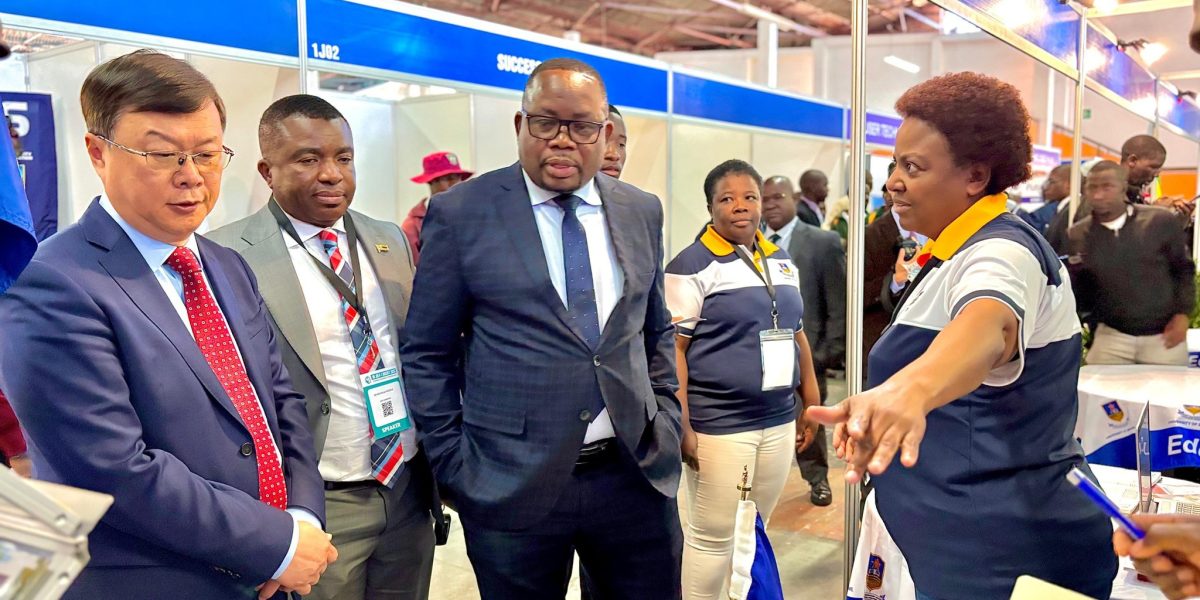In a nation brimming with potential, such as Zimbabwe, human capital is the linchpin of the sought after accelerated transformation. However, we find ourselves at a crossroads: the industry bemoans a persistent mismatch between the skills our education system produces and those that it desperately requires.
As we are pursuing our bold vision of becoming an upper middle-income economy by 2030 as envisioned by His Excellency, the President, Dr E. D. Mnangagwa, it is important that we craft develop and implement strategies to address the mismatch between the skills our education system produces and the demands of our dynamic labour market. If ignored, this skills gap has adverse implications on productivity, innovation, competitiveness, and inclusive growth.
With technological advancements that are taking place globally, we must constantly ask ourselves—are we educating for employability, for innovation, and for resilience? Or are we merely certifying students without crafting meaningful pathways to economic participation?
My Ministry was established with a clear mandate to conduct comprehensive audits of the nation’s skill base, analyze the gaps, and work with stakeholders to craft a transformative framework that links education with real-world demand. In line with this mandate, we embarked on nationwide stakeholder consultations to ascertain availability of skills in various sectors of our economy. What we discovered was sobering: a surplus of graduates in non-strategic areas, and alarming shortages in sectors critical to growth. For example: In mining and manufacturing, we face shortages in geologists, mining engineers, artisans, and technicians; in agriculture, there is a deficit in modern agronomic practices, mechanisation expertise, and agribusiness management; the construction industry lacks adequately trained surveyors, civil engineers, and skilled tradespeople; in the digital and technology sector, we face a severe shortfall in software developers, data analysts, cybersecurity experts, and AI practitioners; Healthcare, we have shortages in specialized medical fields and health technologies.
The consultations revealed major disconnects that include the following:
- Dilapidated Infrastructure mainly in Technical and Vocational Education and Training Institutions.
- Industry-Education Separation: Limited partnerships between employers and tertiary institutions hindering experiential learning.
- Curriculum Lag: Much of our educational content does not reflect current industry technologies or future-facing competencies.
- Low Soft Skills Integration: Employers consistently cite deficits in communication, problem-solving, and adaptive thinking.
The skills mismatch is not just a statistic; it is the lived reality of thousands of graduates who cannot find decent jobs and employment opportunities. It is the frustration of industries unable to fill critical vacancies. And ultimately, it is a missed opportunity for national progress. Ladies and gentlemen, to address these challenges, we must be deliberate in implementing a multi-pronged Skills Development Strategy. Bridging the skills gap requires more than government—it demands collective action.
As Government, we are taking decisive steps to ensure that Zimbabwe’s education and training systems become engines of inclusive growth, not obstacles to it. We are committed to implement various measures including the following:
Building foundations for the future through curriculum reform and embedding stem, entrepreneurship, and digital literacy so that we nurture learners who are not only literate, but technologically skilled, financially savvy, and creatively bold.
We are repositioning our Technical and Vocational Education and Training (TVET) institutions as aspirational pathways to success. These institutions should be modernised, re-equipped, and reimagined to align with high-income career opportunities.
We are working towards a Labour Market Intelligence System so that we train for relevance by utilizing accurate, real-time and actionable data. This system will ensure that our training programs are evidence-based and future-oriented.
We are providing a platform for Private Sector and Academia Engagement to ensure that employers inform curriculum design, support internships, and offer workplace-based training.
Ladies and Gentlemen,
These efforts will be tied together through a comprehensive National Skills Framework that will align universities, colleges, TVET programmes to our national growth priorities.
We are also looking at internship schemes to ensure that students get practical, hands-on exposure in the workplace.
We must take a leaf from global best practices. Germany has perfected the dual education system, where students split time between classroom instruction and on-the-job training with employers. Singapore has created a national SkillsFuture initiative, providing every citizen with credits to pursue lifelong learning aligned to future job needs. Rwanda has implemented a National Employment Programme which connects skills development with priority economic sectors, while supporting entrepreneurship and access to finance. South Korea leverages foresight planning to anticipate future skill requirements in areas like robotics, artificial intelligence, and green technologies. Ethiopia, in its Growth and Transformation Plan, prioritised Technical and Vocational Education and Training (TVET) as the cornerstone for its industrial policy.
Colleagues and friends, our ultimate goal is very clear: to create a learning ecosystem where every graduate is not just employable, but empowered to create jobs, innovate boldly, and drive inclusive development.
Let us build a workforce that is agile, locally relevant, and globally competitive. Let this conference renew our shared purpose. Let it be a rallying point for policy coherence, innovation, and collaboration. Remember that the future of work is already here: we must shape it, not chase it.


